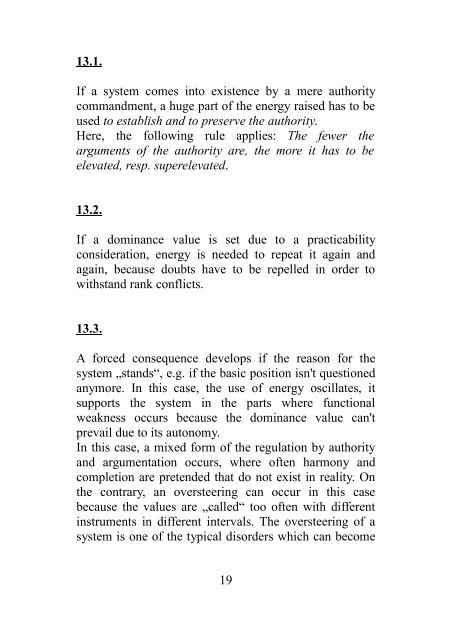Part I - David Greve
Part I - David Greve
Part I - David Greve
You also want an ePaper? Increase the reach of your titles
YUMPU automatically turns print PDFs into web optimized ePapers that Google loves.
13.1.<br />
If a system comes into existence by a mere authority<br />
commandment, a huge part of the energy raised has to be<br />
used to establish and to preserve the authority.<br />
Here, the following rule applies: The fewer the<br />
arguments of the authority are, the more it has to be<br />
elevated, resp. superelevated.<br />
13.2.<br />
If a dominance value is set due to a practicability<br />
consideration, energy is needed to repeat it again and<br />
again, because doubts have to be repelled in order to<br />
withstand rank conflicts.<br />
13.3.<br />
A forced consequence develops if the reason for the<br />
system „stands“, e.g. if the basic position isn't questioned<br />
anymore. In this case, the use of energy oscillates, it<br />
supports the system in the parts where functional<br />
weakness occurs because the dominance value can't<br />
prevail due to its autonomy.<br />
In this case, a mixed form of the regulation by authority<br />
and argumentation occurs, where often harmony and<br />
completion are pretended that do not exist in reality. On<br />
the contrary, an oversteering can occur in this case<br />
because the values are „called“ too often with different<br />
instruments in different intervals. The oversteering of a<br />
system is one of the typical disorders which can become<br />
19


